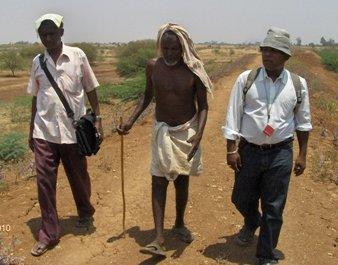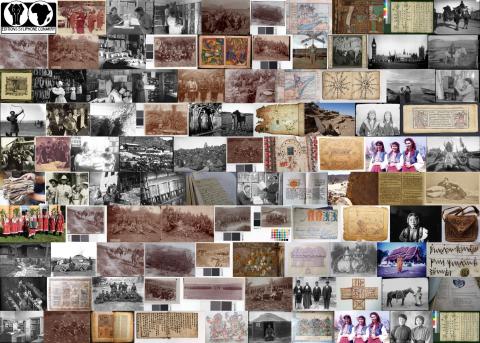
Aims and objectives
This project will be based at the Mushfiq Khwaja Library and Research Centre in Karachi, Pakistan. A minimum of sixty carefully selected titles will be preserved and made accessible. At the end of the project, scholars will have available a significant archive of the most important Urdu periodicals.
The principal rationale for this proposal is that Urdu periodicals have enormous significance for the understanding of Urdu culture and the creation of new knowledge about colonial India. Urdu language was the dominant language of interchange in India through most of the nineteenth century. Since printing in India was cheap, anyone with an opinion might and often did publish a statement of their views. Often such publications were of limited editions, frequently a few hundred copies, and were not collected by many libraries. Yet these publications provide us today with a broad spectrum of writings by colonial Indians on all the major and many minor issues that stirred them in the nineteenth and twentieth centuries. Such writings are invaluable to historians of social, cultural, literary, and intellectual change; to those interested in the development of South Asian languages and the ways these languages were used expressively during the last century; for pedagogical purposes in advanced language courses; and to other scholars. Unfortunately, political disenfranchisement of Urdu culture in much of South Asia and the high acid paper used to produce the periodicals have made this literature highly vulnerable. It is rare to find complete runs of even the most important Urdu periodicals in South Asian libraries. And, even when located, the paper is often very brittle. Further, many of the periodicals are not in the British colonial archives as the number of periodical subscriptions was severely limited, especially those in the languages of the subcontinent. Some periodicals have already completely vanished.
A panel of eminent Urdu scholars in the social sciences and humanities, and librarians has already selected thirty of the most important Urdu periodical titles not yet available as preservation microfilm. Selection panelists will continue to use bibliographies, library catalogues, and the contents of the South Asia Union Catalogue in addition to direct consultation of the periodicals as the prioritised list of Urdu periodicals is expanded. The range of publication dates included under this project will be determined based on legal opinion regarding preservation under the relevant copyright laws of Pakistan and India. Only periodical issues which are in the public domain will be presented for consultation via the internet.
This project will preserve selected titles by creating high-resolution digital page images of the periodicals, starting with the collections available at the Mushfiq Khwaja Library. Project staff will receive advanced training in use of the digitisation equipment at the very beginning of the project. Image capture will continue at other South Asian collections as necessary, to assemble as complete runs as possible. Digitisation will be undertaken following EAP guidelines.
Cataloguing and indexing of the periodicals will be done under funding from other current projects of the Digital South Asia Library, the South Asia Microform Project, and the South Asia Union Catalogue. Access to the preserved Urdu periodicals will be provided through digital images deposited with the British Library. Digital images and catalogue data will also be accessible on the Digital South Asia Library website and the Hathi Trust Digital Library. Participating libraries in South Asia will be able to receive digital copies of periodicals at no cost.
Outcomes
The records copied by this project have been catalogued as:
- EAP566/1 Sharfabad Bedil Library, Karachi - Pakistan, a collection of Urdu books and literary journals. [1805-1947]
- EAP566/2 Abdul Majeed Khokhar Yadgar Library, a collection of Urdu books and literary journals. [1805-1947]
- EAP566/3 Anjuman-i Tarraqi-yi Urdu, Karachi - Pakistan, a collection of Urdu and Persian books, periodicals and manuscripts. [1805-1947]
- EAP566/4 Idarah-yi Yadgar-i Ghalib, Karachi - Pakistan, a collection of Urdu books and literary and literary journals. [1805-1947]
- EAP566/5 Mushfiq Khwaja Library and Research Centre, Karachi, Pakistan. Collection of Urdu books and literary journals. [1805-1947]
Due to the cyber-attack on the British Library in October 2023, the archives and manuscripts database is currently inaccessible and we are unable to provide links to the catalogue records for this project.




